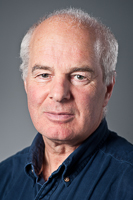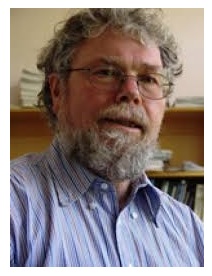
Welcome to BRMEC10
Day 1 of the Colloquium.
BRMEC10 is the tenth Biomedical Research into ME Colloquium organised by the charity.
All delegates to BRMEC10 will have received instructions on joining the meeting via email beforehand including information
about the topics under discussion.
Each day will begin promptly at the published times.

Status Review
The Colloquium begins with an overview of the current status of research and has presentations from different areas.
Speakers are to be announced.
Epidemiology of ME (and Covid)

Speakers:
This section will look at the epidemiological evidence related to ME as well as reviewing the recent accruement of knowledge from COVID-19 research.
Hypotheses discussed include historical evidence for infectious agents including environmental and endogenous viruses and
bacteria being associated with the onset and “outbreaks” of ME/CFS
and
in relation to COVID-19, genetically susceptible individuals are at
increased risk of developing ME/CFS after SARS-CoV-2 infection resulting in an
increase of symptoms fulfilling the diagnostic criteria of ME/CFS amongst infected
individuals.
Speakers will represent these hypotheses which will then be discussed by delegates.
ANS and Autoimmunity

Speakers:
Hypothesis: Autonomic dysfunction and autoantibodies
Mitochondrial Dysfunction

Speakers:
Hypothesis: Mitochondrial dysfunction in ME is metabolic memory of post-inflammatory danger exposure
SUMMARY - DAY 1

Speakers:
To be confirmed

Welcome to BRMEC10
Day 2 of the Colloquium.

OVERVIEW of DAY 2
To be confirmed
To be confirmed
IMMUNOGENETICS

Speakers:
Hypothesis: Immune and Immune genetic factors drive the development and progression of ME/CFS
HOST-MICROBE INTERACTIONS

Speakers:
Hypothesis: To be confirmed
THERAPEUTICS (CURRENT/FUTURE)

Speakers:
Hypothesis: Therapeutic strategies should target the triggering and subsequent signalling events that cause the hallmark clinical symptoms of ME.
SUMMARY BRMEC10

Speakers:
- tbc
To be confirmed
Research tools for ME/CFS-related data and biospecimens

Speakers:
Two new research tools developed by RTI International, the Data Management and Coordinating Center for the NIH-funded ME/CFS Collaborative Research Centers (CRCs) Network, are now available to help advance ME/CFS research by allowing researchers to access and share data and biospecimens. mapMECFS is an online data sharing platform that allows researchers to discover, share, and access data from multi-omic studies. The platform was initially developed to support the ME/CFS Network CRCs that employ a variety of research methods (e.g., microbiome screens, RNA sequencing, mitochondrial assays, metabolomic assays) to identify potential biomarkers and study the underlying cause(s) of ME/CFS. mapMECFS allows researchers to search the contents of data sets across multiple studies, quickly compare results for specific molecules or markers of interest, and download relevant data to be used for exploration or validation studies. Additionally, mapMECFS encourages and facilitates sharing of new data by capturing key study metadata to make results easier to find. searchMECFS is an online, interactive search tool that allows researchers to query and request available biospecimens (e.g., DNA, RNA, urine, plasma, and peripheral blood mononuclear cells) based on specific demographic and clinical characteristics. The initial cohort, the Chronic Fatigue Initiative, was a research study supported by the Hutchins Family Foundation. Biospecimens and associated data were collected from 201 individuals with ME/CFS and 200 matched controls. The biospecimens are housed at BioSEND, NINDS’ biomarker repository at Indiana University, and the data are hosted by RTI International. Investigators may also request access to just the clinical data for analysis. Additional cohorts’ biospecimens and datasets will be available in the future. Researchers who access biospecimens through searchMECFS will be able to upload the completed assay results into mapMECFS to make the information widely available to other investigators. The development of these tools was supported by U24-NS105535 to RTI International.
Professor Ola Didrik Saugstad

Professor - Paediatric Research Institute, Institute of Clinical Medicine, University of Oslo, Norway
Professor Ola Didrik Saugstad is a Norwegian pediatrician and neonatologist noted for his research on resuscitation of newborn children and his contribution to reduce child mortality.[2] Since 1991, he has been Professor of Pediatrics at the University of Oslo and Director of the Department of Pediatric Research at Oslo University Hospital, Rikshospitalet
Saugstad received the 2012 Nordic Medical Prize, is a member of the Norwegian Academy of Science and Letters and became a Knight First Class of the Order of St. Olav in 2010.
Other Links
Professor Warren Tate

University of Otago, New Zealand
Professor Warren Tate from University of Otago in New Zealand - is an internationally respected biochemist, winner of the Royal Society of New Zealand's top science honour - the 2010 Rutherford Medal, and was also named a Companion of the New Zealand Order of Merit. His honour citation noted that Professor Tate was a molecular biologist, whose research had "revolutionised understanding" of how proteins were synthesised in living cells. His research had shown how proteins contributed to memory formation and neurological disease, and had important implications for HIV, Alzheimer's and chronic fatigue syndrome. Professor Tate is a Fellow of the Royal Society of New Zealand and of the New Zealand Institute of Chemistry. He has been a Fellow of the Alexander von Humboldt Foundation of Germany, and an International Research Scholar of the Howard Hughes Medical Institute of the United States.
Other Links
ME Research Update at National Institutes of Health, USA
Dr Vicky WhittemoreProgram Director in the National Institute of Neurological Disorders and Stroke at the National Institutes of Health in the United States.
Dr. Whittemore is a Program Director in the Synapses, Channels and Neural Circuits Cluster. Her interest is in understanding the underlying mechanisms of the epilepsies including the study of genetic and animal models of the epilepsies.
The major goal is to identify effective treatments for the epilepsies and to develop preventions. Dr. Whittemore received a Ph.D. in anatomy from the University of Minnesota, followed by post-doctoral work at the University of California, Irvine, and a Fogarty Fellowship at the Karolinska Institute in Stockholm, Sweden.
She was on the faculty of the University of Miami School of Medicine in The Miami Project to Cure Paralysis prior to working with several non-profit organizations including the Tuberous Sclerosis Alliance, Genetic Alliance, Citizens United for Research in Epilepsy (CURE), and the National Coalition for Health Professional Education in Genetics (NCHPEG).
She also just completed a four-year term on the National Advisory Neurological Disorders and Stroke Council.
-
References
ME Research Developments at Quadram Institute
Professor Simon CardingResearch Leader, Quadram Institute Bioscience, Norwich Research Park, UK
Upon completing postgraduate work at the Medical Research Council’s Clinical Research Centre in Harrow, Professor Carding “emigrated” to the USA to take up a postdoctoral position at New York University School of Medicine, and then at Yale University as a Howard Hughes Fellow in the Immunobiology Group at Yale University with Profs Kim Bottomly and Charlie Janeway Jr. While at Yale an interest in gamma-delta (γδ) T cells was acquired working closely with Adrian Hayday on molecular genetics and then with Prof. Peter Doherty to establish their role in (viral) infectious disease.
He left Yale after five years to take up a faculty position at the University of Pennsylvania in Philadelphia where he developed a research interest in mucosal and GI-tract immunology, performing studies in germfree mice with Prof John Cebra that helped establish the role of gut microbes in the aetiology of inflammatory bowel disease (IBD).
After 15 years in the USA, he returned to the UK to take up the Chair in Molecular Immunology at the University of Leeds where he established a new research programme on commensal gut bacteria and Bacteroides genetics leading to the development of a Bacteroides drug delivery platform that is being used for developing new interventions for IBD and for mucosal vaccination.
In 2008 he was recruited by UEA and IFR to develop a gut research programme, taking up the Chair of Mucosal Immunology at UEA-MED and the position of head of the Gut Biology Research Programme at IFR, which later became part of the Gut Health and Food Safety (GHFS) Programme.
GHFS research covers a broad area of gut biology including epithelial cell physiology, mucus and glycobiology, mucosal immunology, commensal microbiology, foodborne bacterial pathogens, and mathematical modelling and bioinformatics. The success of this programme has led to the establishment of the Gut Microbes and Health research programme that is integral to the research agenda of The Quadram Institute.
-
References
Metabolic profiling and associations to clinical data in ME
Professor Karl Johan TronstadProfessor Institute for Biomedicine , Tronstad Lab, Bergen, Norway
Professor Tronstad completed his graduate studies in biochemistry at the University of Bergen (UiB) in 2002. As postdoc at the Haukeland University Hospital, he studied bioactive compounds with the potential to modulate mitochondrial functions in cancer cells. In 2005 he was recruited to the Department of Biomedicine, UiB, where he started his research group to investigate metabolism and mitochondrial physiology. His laboratory seeks to better our understanding of how defective mitochondrial homeostasis may disturb cell physiology, and how this may be involved in mechanisms of cancer and Myalgic Encephalomyelitis/Chronic Fatigue Syndrome (ME/CFS).
Karl was involved with the recent paper to come from Bergen - Journal of Clinical Investigation Insight.
The Tronstad Lab investigates cell metabolism and mitochondrial biology and we are very fortunate that he can spare time to participate in the Colloquium.
Specialisms:
Metabolism, Cell biology, Mitochondria, Biochemistry
-
References
Integrative Medicine Approach to Treatment of ME
Professor Nancy KlimasDirector, Institute for Neuro Immune Medicine, Nova Southeastern University
Director, Clinical Immunology Research, Miami VAMC
Professor of Medicine, Department of Clinical Immunology, College of Osteopathic Medicine, Nova Southeastern University
Chair, Department of Clinical Immunology, College of Osteopathic Medicine, Nova Southeastern University
Professor Emerita, University of Miami, School of Medicine
Nancy Klimas, MD, has more than 30 years of professional experience and has achieved international recognition for her research and clinical efforts in multi-symptom disorders, Myalgic Encephalomyelitis/Chronic Fatigue Syndrome (ME/CFS), Gulf War Illness (GWI), Fibromyalgia, and other Neuro Immune Disorders. She is immediate past president of the International Association for CFS and ME (IACFS/ME), a professional organization of clinicians and investigators, and is also a member of the VA Research Advisory Committee for GWI, the NIH P2P CFS Committee, and the Institute of Medicine ME/CFS Review Panel. Dr. Klimas has advised three Secretaries of Health and Human Services, including Kathleen Sabelius, during her repeated service on the Health and Human Services CFS Advisory Committee. Dr. Klimas has been featured on Good Morning America, in USA Today and the New York Times.
.-
References
BRMEC10 AGENDA
The Invest in ME Research Biomedical Research into ME Colloquium 10 (BRMEC10) is set to begin on Wednesday 2nd June 2021.
The agenda and the times below are provisional and are subject to change and will be finalised over the coming weeks.


 Autonomic nervous system; Heart rate and blood pressure control; Cardiovascular physiology and pathophysiology;
Autonomic nervous system; Heart rate and blood pressure control; Cardiovascular physiology and pathophysiology;

